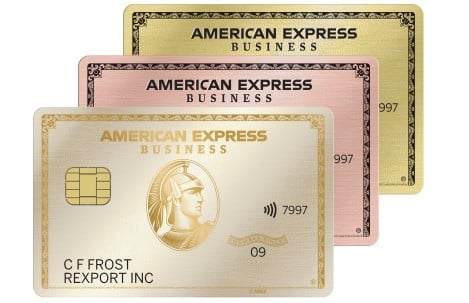How to Benefit From Corporate Pledges to Minority Businesses

Many, or all, of the products featured on this page are from our advertising partners who compensate us when you take certain actions on our website or click to take an action on their website. However, this does not influence our evaluations. Our opinions are our own. Here is a list of our partners and here's how we make money.
Since the start of 2020, companies from Bank of America and JPMorgan Chase to Google and Twitter have pledged billions of dollars to support entrepreneurs of color.
All those dollars don’t go directly into business owners’ pockets, however. Many are being invested in other financial institutions — particularly community development financial institutions, whose services include making small-business loans to borrowers underserved by traditional banks.
“We give folks a chance when others can't or won't,” says Martina Edwards, chief of strategic partnerships at ACE, a CDFI that supports entrepreneurs in Atlanta and north Georgia with low-interest loans, financial education and business development services.
Corporate and philanthropic support “allows us to accelerate the work that we’re doing,” including making more loans, Edwards says.
If you’re a business owner of color, here’s how these pledges can benefit you.
How much do you need?
We’ll start with a brief questionnaire to better understand the unique needs of your business.
Once we uncover your personalized matches, our team will consult you on the process moving forward.
Get a business loan
In general, corporate investments in CDFIs take the form of loan funds. CDFIs can borrow from these funds at low interest rates and lend that money to their clients.
There are more than 1,200 CDFIs in the U.S., according to the Department of the Treasury, including banks, credit unions, loan funds and venture capital funds. CDFIs specialize in the kinds of loans banks might turn down: small loans with low interest rates to borrowers with short credit histories or limited collateral.
For example, ACE’s average Paycheck Protection Program loan was around $24,000, with 90% of funding going to businesses with five or fewer employees and 67% to Black-owned businesses, Edwards says. For comparison, the average PPP loan approved between the start of 2021 and May 31 was $42,000, and among recipients who provided their race, Black borrowers received 5.8% of approved funding, according to the Small Business Administration.
“The work that we do allows us to provide affordable capital,” Edwards says, “which fuels successful business growth and kind of cascades on through families as they build assets and resources and create jobs.”
Get wraparound support
New Jersey-based TD Bank has dedicated $30 million in equity capital to CDFIs as part of the Equity Fund it announced in June, according to Michael Innis-Thompson, senior vice president and head of community lending and development for TD Bank.
“They're experts in the field, and they have a strong presence in their communities,” Innis-Thompson says of CDFIs.
Business owners often get connected with CDFIs through educational programming, from webinars and networking events to monthslong business development courses. ACE offers programming in English and Spanish.
CDFIs are “a resource for more than just capital,” Innis-Thompson says. They offer “technical assistance and other support, like accounting, legal, human resources, general advice, as well as how to write a stronger business plan… it's about having a support system so that these businesses can be successful.”
You can find a CDFI that can serve you by using the CDFI Locator tool from the Opportunity Finance Network, which is the national association of CDFIs.
Find a new bank
Like CDFIs, minority depository institutions — banks where most stockholders or board members are people of color — are seeing new investment from national banks and corporations. Wells Fargo, for example, has invested $50 million in equity capital in 13 Black-owned banks.
While MDIs generally have similar underwriting requirements to national and regional banks, many are community-minded and may make “more of an effort” to work with small borrowers, says Ken Alozie, managing director at the Washington, D.C.-based commercial lender Greenwood Capital Advisors.
“They have more of a mandate to revitalize, or do something that’s going to be economically impactful to the communities they’re in,” Alozie says.
Plus, working with a local or community-based bank keeps dollars circulating within your community, which can benefit your neighbors too.
Get a direct investment
In addition to supporting CDFIs, TD Bank dedicated $75 million to a specialized small-business investment company, an SBA-licensed organization that offers equity and debt financing to growing companies.
Funding from a small-business investment company is similar to venture capital, which is not for every type of business. These investors are typically looking for medium-size, established businesses that are ready to grow — those with revenues of around $5 million and up, Innis-Thompson says. If you believe your business is the right fit for this type of funding, a list of active SBICs is available on SBA.gov.
JPMorgan Chase is also focusing on midsize companies seeking to scale, pledging $200 million to be invested alongside private asset management firm Ariel Alternatives’ Project Black.
Additionally, PayPal has pledged $100 million to Black and Latinx-led venture capital funds.
To connect with investors, participate in the ecosystem: Network in your community, attend pitch events and apply to accelerator programs. Keep in mind, however, only a fraction of businesses receive venture capital.
Push for financial equity
These pledges are part of a larger landscape of corporate commitments to support racial equity. Banks and corporations are also promising to make mortgage loans to borrowers of color, invest in historically black colleges and universities and help build affordable housing.
“There's a hunger to address racial justice in many dimensions,” says Lisa Mensah, president and CEO of the Opportunity Finance Network. “I think CDFIs have something immediate to offer.”












